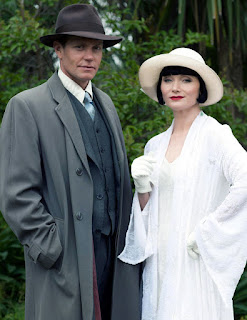On 6 September of 1478, Kristina and Hans married in Copenhagen. They came to have five (perhaps six) children: Hans and Ernst born in 1479 and 1480 respectively and died as babies. Kristian born in 1481 who came to rule the Kalmar union under the name Kristian II. Elisabeth was Christina and Hans's only daughter, born in 1485 and in 1497, they got the son Frands.
They might also have had a son named Jakob (born between Kristian and Elisabeth), but there are some critical problems with this. He is only known from a Mexican written source from after he died there in 1566. The text says he is the son of a king who gave up everything to became a Christian missionary monk in Mexico. Erik Petersson is very sceptical to this story in his biography over Kristian II, Furste av Norden (2017), especially since there are no Danish or general Scandinavian sources who mentions Jakob.
At first everything seems to have been good between the spouses and the growing family settled in Nyborg on the Danish island of Funen. In 1481, Kristian I died and Hans inherited the throne. After this he was mostly out travelling or in Copenhagen discussing politics.
There is also a discussion about whether Kristian really was Hans's son. An Italian ambassador was present at the court in Copenhagen in 1480 and Kristina seems to have liked him and he was often seen in her company. He left, but when after a few years, Kristian did not really look like any one of his parents the gossip started to spread. One of the things that could be used against Hans being the biological father is the fact that both he and his wife had blue eyes, while Kristian ended up with brown ones. Genes are not simple or straight forward however and the DNA tombola quite often ends up bringing out hidden genes from past generations, so even though it is uncommon, two blue-eyed parents might end up with a brown-eyed son. In this case the biological paternity really does not matter either because Hans treated Kristian as his own son, raising him to take over the throne no matter what.
In 1497, Hans and Kristina were finally elected king and queen of Sweden too, but the peace did not last long because Sten Sture (the older) started collecting nobiles for a new uprising in the spring of 1501. At the end of the autumn that year, Hans left Kristina in charge of 1000 soldiers at the castle Tre kronor in Stockholm and went home to Copenhagen. The winter would be extremely hard on the people captured in the siege at Tre kronor. The food and drinks were sparse and at the end it was only salted meat left and a lot of the soldiers became ill and died in scurvy. More and more of her men also wanted to give up, but was given a cold sholder from Kristina who really seem to have thought her husband would come save them and Stockholm when the ice thawed on the sea in the spring.
Hans on the other hand, seems to have had everything else in mind but save his wife. At first he got into some other troubles with the Western parts of the union. Akershus in Oslo was taken by the nobilies Knut Alvsson Tre rosor at about the same time as Sten Sture's uprising started in Stockholm and from there he also threatened what is now the Swedish west coast. It all sort of solved itself when Knut suddenly died in August 1502, but Hans still did not send ships to aid Kristina and his men in Stockholm. Instead he thought it more important to arrange a suitable marriage for their daughter Elisabeth. She was soon married off to Joachim I Nestor, Elector of Brandenburg.
In early May, Kristina had no other choice but to capitulate to Sten Sture and even though she was promised freedom, she was taken as his prisoner at first the Black Friars's Monastery and then the Grey Friars's Monastery in Stockholm before being handed over to the nuns at the Birgitta convent in Vadstena. Only a few days after she gave up the castle Hans's ships finally turned up on the sea. He refused to disembark, turning the ships around and went back to Copenhagen where he had a (married) mistress named Edele Mikkelsdatter Jernskjaeg.
Kristina was to be kept hostage for more than one and a half year before Hans finally bothered to negotiate with Sten for her freedom in the autumn of 1503. There is no prof that she suffered particularly during this time, but she was still not a free person. After getting her freedom, Sten escorted her to Halmstad where she met Kristian who brought her back to Copenhagen. When getting home, she had had enough. Without seeking premisons from the German electors whose land she would travel she almost immediately went on a tour to visit Elisabeth in Brandenburg. This could have turned really ugly for her, but she made it to her daughter where she stayed for awile before returning home to Denmark. She settled at her farm outside of Odense where she lived until her death on 8 Octboer 1521.
In cases like Kristina, you really wish that the Medieval sources for Scandinavia would be more informative. Like with so many women, the posternity has not been kind to her. She is mostly portrayed as a religious fanatic bullied for being a passive hypochondriac. The little we know about her character however and from what can be read through her actions show a brave, politically gifted women with a strong will and it is obvious that Kristian did inherit his temperament and stubborness from her.
References
- Erik Petersson 2017, Furste av Norden, Falun
- Lars-Olof Larsson 2006, Kalmarunionens tid, Falun
Picture was borrowed from: https://en.wikipedia.org/wiki/Christina_of_Saxony






